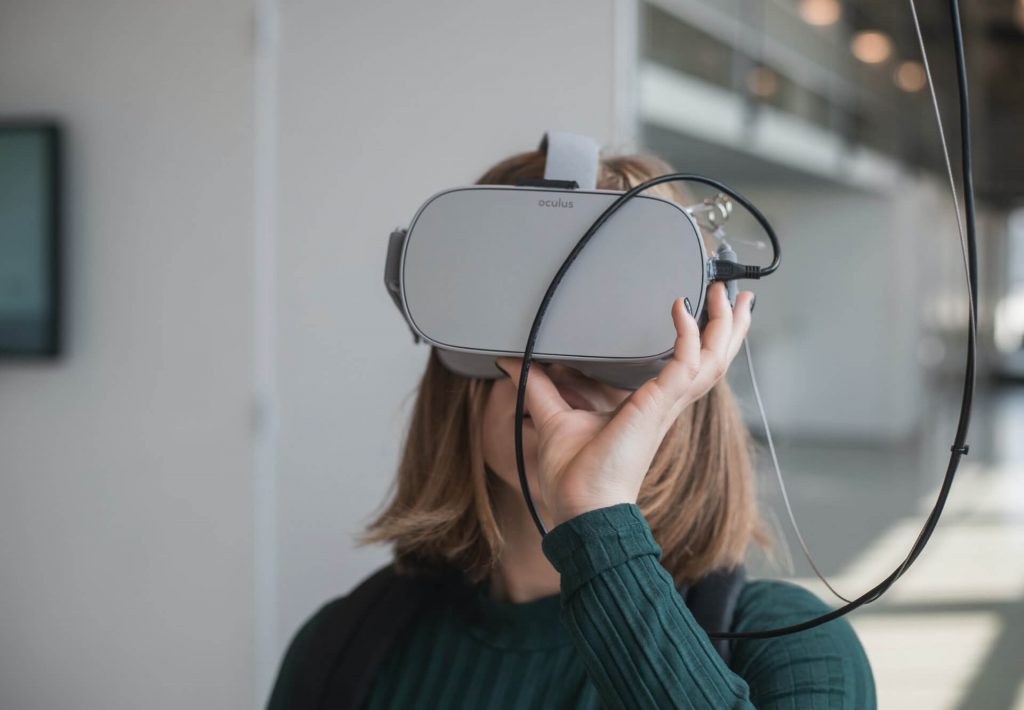When most people discuss virtual reality (VR), they do so in the context of a fun activity or game. However, the versatility of VR extends far beyond simply creating enjoyable experiences. It can also help people. Recently, VR technology has made its way into healthcare for diagnosing diseases, educating doctors and nurses, and coordinating daily operations. Furthermore, virtual reality is also instrumental in the field of psychology. Not only can it help those with mental health issues feel better by engaging in pleasurable or productive activities, but it also gives them practice in coping with various situations. For this reason, today, we will explore the role of virtual reality in mental health treatment.
1. Treating Psychosis
Studies conducted in the last several years have shown that VR may effectively deal with different types of psychosis. In 2020, a review was published in the International Journal of Environmental Research and Public Health, revealing some fascinating insights about immersive technology. Thirty patients with persecutory delusions were employed in research comparing the efficacy of virtual reality exposure treatment (VRET) alone to that of VR experiences plus cognitive behavioral therapy (VRCBT).
The latter was superior in alleviating patients’ illusions and keeping them grounded in reality. Much evidence, including this meta-analysis, suggests that putting patients in virtual reality (VR) safe and realistic experiences may assist clinicians in evaluating them, all while reducing the patient’s symptoms. It won’t be long until healthcare systems adopt interactive VR scenarios to treat psychosis, especially if headsets and software improve comfort and therapeutic procedures.
2. Helping with PTSD
Treatment for post-traumatic stress disorder (PTSD) using virtual reality could involve creating a simulation for the patient to experience and learn to cope with throughout multiple sessions. Several clinical tires have looked at virtual reality exposure therapy. That is the main contributing factor to the rising interest in using VR technology for therapy. According to research published in the European Journal of Psychotraumatology, VR therapy is more effective than a placebo group at alleviating PTSD symptoms for 122 people. That helped validate the efficacy of virtual therapy for PTSD and demonstrated that it is a viable option for patients unable to attend traditional therapy sessions.
3. Alleviating Anxiety
The role of virtual reality in mental health treatment is also shown with positive outcomes when treating anxiety. Virtual reality can be an effective supplement to cognitive behavior therapy for managing anxiety and depression, according to a meta-analysis of 34 studies published in JMIR Mental Health in 2021. That is because VR allows patients to confront and manage their fears in a familiar and comfortable setting. That is true whether mental health professionals use it in conjunction with VRET or entirely in a virtual world.
4. Treating Phobias
Many apps exist to help you conquer your anxiety about public speaking or rejection. However, phobias often involve more nuanced dynamics. Phobias come in many different forms. Getting past them requires bravery and a method that forces you to confront your fear while simultaneously lessening its grip on you. When combined with cognitive behavior therapy, virtual reality software like Freethink has already proven effective.
Virtual reality exposure therapy is a form of treatment that allows patients to face their fears without having to physically leave the comfort of their doctor’s office. Patients still face the possibility of being triggered by the immersive nature of virtual simulations. However, they also have the opportunity to overcome each challenge presented to them. That gives them the confidence and determination they need to overcome their fears. An experienced doctor with top-tier software can tailor each session to help patients overcome their fears.
5. Making Addiction More Manageable
Substance abuse usually results from negative emotions like anxiety and depression. However, according to Bright Futures Treatment Center experts, a virtual reality setting may help reduce the intensity of these emotions. That, in turn, can assist people in maintaining their composure and self-control even when cravings strike. With the help of virtual environments and practical methods for dealing with stress in everyday life, mental health experts can significantly reduce cravings and addiction.
As the patient participates in activities and learns self-soothing techniques, like meditation and breath control, the experience becomes more compelling. The point of VR treatment is to help the patient learn to manage their feelings and move on from anything that sets off their addiction. Virtual reality is just getting started as a treatment for mental health issues. However, it has already been shown to help reduce symptoms associated with addiction.

6. Helping With Depression
VR is effective for treating depression because it puts people in situations that are either enjoyable or helpful. However, a 2019 research published in Front Psychiatry suggests that VR is also useful for remote cognitive behavioral therapy. This form of treatment allows therapists to work with a patient safely and cost-effectively. Studies suggest that VR can be helpful for depression. However, more research is necessary to fully understand its role. That, however, shouldn’t discourage people from trying it out.
Conclusion
The role of virtual reality in mental health treatment is still relatively new.
This technology has a lot of potential to help people recover from many issues. However, researchers are still investigating the best way to use it in real-world situations. VR can be a powerful tool in treating various mental health problems when combined with the right software and a qualified therapist. That is not to say that virtual reality will completely replace traditional forms of therapy; rather, it will supplement them by providing additional tools that allow people to work through their problems at their own pace.



